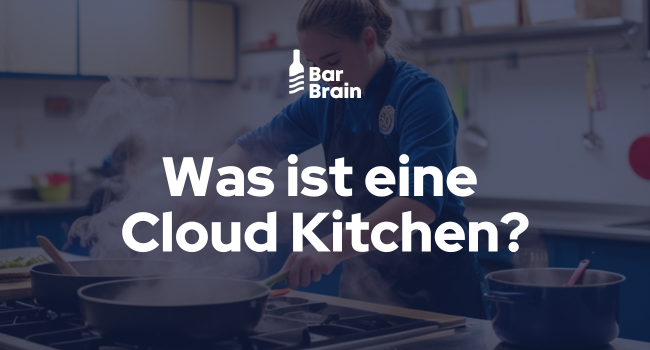What you need to know about the legal requirements for stocktaking
There are many challenges in the food service industry, but the legal requirements for stocktaking are often one of the most complex. Compliance with the rules is essential, especially for companies that are required to keep accounts, as an incorrect or incomplete inventory can quickly lead to problems with the tax authorities. But what exactly do legislators and tax authorities require? In this article, we explain which legal requirements apply to stocktaking in the catering industry, what the consequences are and how you can comply with them with minimal effort.
Is stocktaking required by law?
The German Commercial Code (HGB) obliges companies to carry out a regular inventory. The aim is to obtain an accurate overview of a company's assets in order to ensure a correct balance sheet and profit calculation. For restaurateurs, this means that all stocks, inventories and materials must be recorded and documented.
The legal basis for stocktaking can be found in particular in:
- §240 HGB: Requires companies preparing balance sheets to prepare a complete inventory.
- §SECTION 241 HGB: Regulates simplified procedures for small companies (e.g. inventory sampling).
- Fiscal Code (AO): Requires the retention of inventory documents for at least 10 years.
Who is obliged to take inventory?
Not every company has to carry out an inventory. There are clear rules as to when stocktaking is mandatory:
- Companies required to keep accounts: All companies that are required to keep accounts in accordance with the German Commercial Code (HGB) must carry out an inventory.
- Sole traders with the exception of companies that generate less than € 600,000 turnover and € 60,000 profit in two consecutive financial years are exempt from the inventory requirement.
The following applies to restaurateurs: As a rule, almost all larger businesses, such as restaurants, bars or hotels, are obliged to take stock, especially if they are required to keep a balance sheet.
What must be recorded during the inventory?
The inventory includes all physical and non-physical assets of the company:
- Physical stocks:
- Food and beverages
- Packaging materials
- Cleaning agent
- Equipment such as glasses, plates or cooking utensils
- Non-physical values:
- Trade receivables
- Licenses, such as software for POS systems
Important: Damaged or spoiled goods must also be documented and devalued accordingly.
When should the inventory be carried out in the food service industry?
Legal requirements:
The German Commercial Code (§240 HGB) prescribes an inventory as at the balance sheet date for companies required to prepare accounts. As a rule, this must be carried out at the end of the financial year, usually on December 31. The aim is to obtain a complete inventory that is included in the balance sheet and enables profits to be determined correctly.
Practical implementation in gastronomy:
While the legal obligation prescribes an annual inventory, a monthly or quarterly inventory proves to be more sensible. Why?
- Recognize shrinkage at an early stage: Regular stocktaking helps to identify losses due to theft, spoilage or incorrect storage more quickly.
- Optimized orders: With more frequent inventories, you can better adjust orders to actual demand and avoid excess stock.
- Seasonal fluctuations: The food service industry is characterized by seasonal changes. More frequent inventories give you a more accurate picture of stock levels and turnover rates, e.g. in the summer or Christmas period.
Recommendation:
- Monthly stocktaking: Ideal for businesses with high shrinkage potential or a large variety of goods, such as restaurants or bars.
- Quarterly inventory: Suitable for smaller companies or those with more stable stock levels.
- Annual inventory: Obligation to comply with legal requirements and as a basis for the annual financial statements.
With a well-planned and regular inventory, you can not only meet legal requirements, but also minimize shrinkage, reduce costs and increase the efficiency of your business. Tools such as BarBrain make the process much easier and save valuable time.
What are the documentation requirements?
The inventory must be fully documented and the records must be kept for at least 10 years. The following points are essential:
- Inventory lists: Contain all recorded items with quantities and values.
- Valuation of inventories: All items must be valued at the lower of cost or market value.
- Reports and logs: Show the exact results of the inventory, including deviations and shrinkage.
What are the consequences of mistakes?
Incorrect or incomplete inventories can have serious consequences:
- Tax consequences:
- Incomplete information may result in additional payments or fines.
- Inaccurate inventory data is a frequent point of contention during tax audits.
- Operational problems:
- Missing stocks or incorrect values can lead to financial losses.
- Shrinkage or theft remains undetected, which jeopardizes the profitability of the business.
Tip: Correct and regular stocktaking protects against problems and increases transparency.
How can BarBrain support you with the legal requirements?
Compliance with legal requirements is often complex and time-consuming. With digital solutions like BarBrain, you can simplify the process considerably:
- Automated stocktaking: precise level measurement for beverages and simple recording of food.
- Digital reports: Automatic creation of inventory lists and logs that comply with legal requirements.
- Time saving: Reduces the effort involved in stocktaking by up to 50 %.
- Shrinkage analysis: Shows deviations between target and actual stock levels in order to minimize losses.
Conclusion: Legally compliant stocktaking without stress
The legal requirements for stocktaking in the catering industry are clearly regulated, but often a challenge in practice. With the right preparation, careful documentation and digital tools such as BarBrain, you can not only comply with the legal requirements, but also increase the efficiency of your business.


























